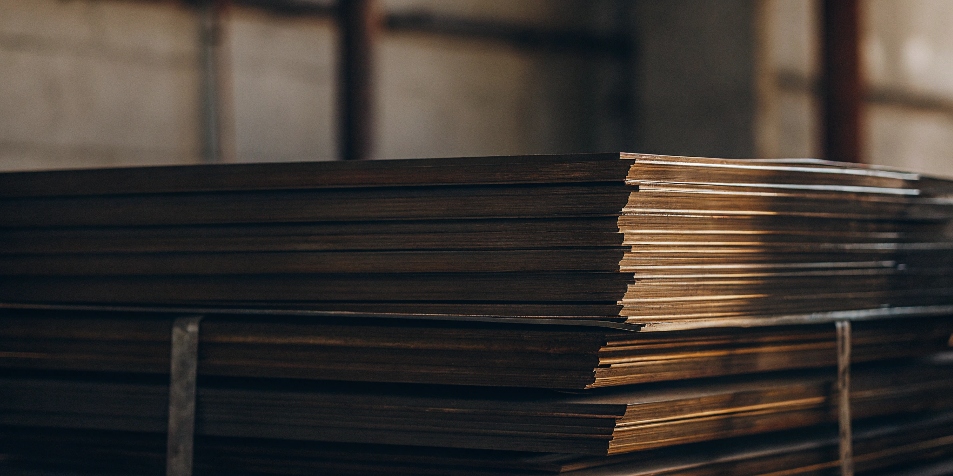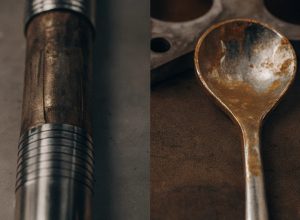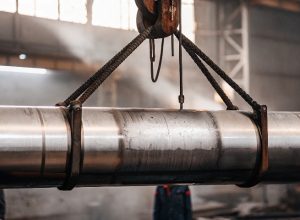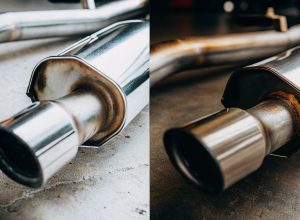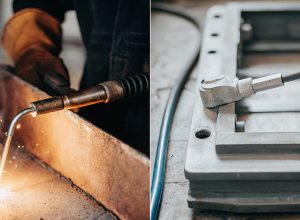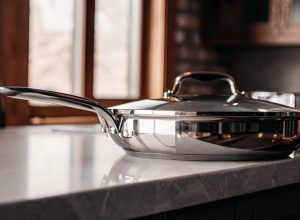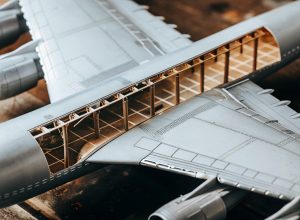Verwirrt von den einzigartigen Eigenschaften des Titans für Ihr Projekt? Eine falsche Wahl führt zu kostspieligen Misserfolgen. Um die Stärke und Korrosionsbeständigkeit von Titan erfolgreich zu nutzen, ist es wichtig, die Grundlagen zu verstehen.
Titanbleche sind flachgewalzte Produkte aus Titan oder seinen Legierungen. Sie werden wegen ihres ausgezeichneten Verhältnisses von Festigkeit zu Gewicht, ihrer hervorragenden Korrosionsbeständigkeit und ihrer Biokompatibilität geschätzt. Die Hersteller produzieren sie durch Warm- oder Kaltwalzen großer Blöcke in verschiedenen Dicken, die den unterschiedlichen industriellen Anforderungen entsprechen.
Zu wissen, was sie sind, ist nur der Anfang. Der wahre Wert ergibt sich aus der Auswahl des perfekten Typs für Ihre spezielle Aufgabe. Die richtige Wahl stellt sicher, dass Ihr Projekt die erwartete Leistung erbringt und den Kostenrahmen einhält. Lassen Sie uns näher darauf eingehen, wie Sie das richtige Material auswählen und worauf Sie beim Kauf achten sollten. Dieses Wissen wird Ihnen helfen, häufige Fallstricke zu vermeiden und eine sichere Entscheidung zu treffen.
Wie wählt man die richtige Qualität und Dicke von Titanplatten aus?
Sind Sie verwirrt von den vielen verfügbaren Titangüten und -dicken? Die Wahl des falschen Titans kann zu Materialverschwendung, schlechter Leistung und Projektrückschlägen führen. Lassen Sie uns den Auswahlprozess vereinfachen.
Um die richtige Sorte zu wählen, muss sie auf die Anwendung abgestimmt werden. Für medizinische Implantate ist die Sorte 23 am besten für die Biokompatibilität geeignet. Bei chemischer Belastung bietet Sorte 7 eine hervorragende Korrosionsbeständigkeit. Wählen Sie dann eine Dicke, die den strukturellen Anforderungen entspricht, um Materialabfall und Verarbeitungskosten zu minimieren.
Anpassung der Besoldungsgruppe an die Stelle
Bei der Wahl des richtigen Titangrades kommt es auf den Verwendungszweck an. Man braucht nicht für jede Anwendung die stärkste und teuerste Sorte. Kunden wie Ahmed, der ein Vertriebsunternehmen betreibt, rate ich oft, Sorten mit breiter Anziehungskraft zu bevorraten. Die Sorte 2 beispielsweise ist handelsüblich und zeichnet sich durch eine gute Formbarkeit und Korrosionsbeständigkeit aus und eignet sich perfekt für Teile in der Architektur oder der allgemeinen Industrie. Die Sorte 5 (Ti-6Al-4V) ist das Arbeitspferd der Branche. Er zeichnet sich durch seine hohe Festigkeit, sein geringes Gewicht und seine Korrosionsbeständigkeit aus und wird daher gerne für Teile in der Luft- und Raumfahrt und in der Hochleistungsautomobilbranche verwendet. Für sehr spezielle Anforderungen, wie z. B. den Umgang mit säurehaltigen Chemikalien, ist die Sorte 7 der klare Gewinner, da sie Palladium für zusätzlichen Korrosionsschutz enthält.
| Klasse | Hauptmerkmal | Gemeinsame Bewerbung |
|---|---|---|
| Klasse 2 | Ausgezeichnete Formbarkeit, mäßige Festigkeit | Chemische Verarbeitung, Architektur |
| Klasse 5 | Hohes Verhältnis von Festigkeit zu Gewicht | Luft- und Raumfahrt, Leistungssport |
| Klasse 7 | Höchste Korrosionsbeständigkeit | Chemische Tanks, Entsalzung |
| Klasse 23 | Hohe Reinheit, biokompatibel | Medizinische Implantate, chirurgische Werkzeuge |
Genau die richtige Dicke
Nachdem Sie sich für eine Sorte entschieden haben, müssen Sie sich für die Dicke entscheiden. Diese Entscheidung wirkt sich sowohl auf die Kosten als auch auf die Leistung aus. Ein zu dickes Blech bedeutet, dass Sie für Material bezahlt haben, das Sie nicht brauchen, und dass Sie mehr Zeit und Geld für die Nachbearbeitung aufwenden müssen. Ein zu dünnes Blech ist möglicherweise nicht stabil genug, um die Last zu tragen, was zu einem Versagen führen kann. Ich frage meine Kunden immer nach ihrem Fertigungsprozess. Wenn ein Teil eine umfangreiche Bearbeitung erfordert, spart es eine Menge Ressourcen, wenn man mit einer Blechdicke beginnt, die näher an der endgültigen Abmessung liegt, der so genannten Near-Net-Shape. Für Teile wie einfache Halterungen oder Abdeckungen kann eine Standardblechdicke perfekt sein.
Was sind die häufigsten Anwendungen von Titanblechen und -platten?
Sie fragen sich, wo Titanbleche und -platten tatsächlich verwendet werden? Wenn Sie die wichtigsten Anwendungen nicht kennen, verpassen Sie möglicherweise die Möglichkeit, ihre einzigartigen Vorteile für Ihre eigenen Projekte zu nutzen. Lassen Sie uns die Branchen erkunden, die auf sie angewiesen sind.
Titanbleche sind in vielen anspruchsvollen Bereichen unverzichtbar. Sie werden für Flugzeugrümpfe und Triebwerksteile, chemische Verarbeitungstanks, medizinische Implantate wie künstliche Hüften und salzwassergefährdete Schiffsbauteile verwendet. Ihre leichte Festigkeit und Korrosionsbeständigkeit machen sie zur ersten Wahl für diese Anwendungen.
Vom Himmel auf die Meere
Die berühmteste Eigenschaft von Titan ist sein unglaubliches Verhältnis von Festigkeit zu Gewicht. Aus diesem Grund ist es in der Luft- und Raumfahrtindustrie so beliebt. Sie finden Titanbleche und -platten in Flugzeugrahmen, Triebwerkskomponenten, Fahrwerken und Befestigungselementen. Durch die Verwendung von Titan wird das Gewicht des Flugzeugs reduziert, was die Treibstoffeffizienz und die Leistung verbessert. Ich habe mit vielen Zulieferern der Luft- und Raumfahrtindustrie zusammengearbeitet, die sich aus diesem Grund ausschließlich auf zertifiziertes Titan der Güteklasse 5 verlassen.
Auch die Schifffahrtsindustrie profitiert stark von Titan. Salzwasser ist für die meisten Metalle extrem korrosiv, aber nicht für Titan. Es wird für Propellerwellen, Wärmetauscher auf Schiffen und U-Booten sowie für Offshore-Takelage verwendet. Ich erinnere mich an einen Kunden, der für seine Unterwassersensoren von Edelstahl auf Titan umgestiegen ist. Dadurch wurden Korrosionsausfälle vollständig beseitigt und die Wartungskosten drastisch gesenkt.
Kritische industrielle und medizinische Verwendungszwecke
In der chemischen Industrie müssen die Anlagen täglich mit hochkorrosiven Säuren und Chemikalien umgehen. Titan wird für den Bau von Reaktoren, Tanks, Rohren und Ventilen verwendet, da es diesen rauen Umgebungen standhalten kann, ohne sich zu zersetzen. Grade 7 mit seiner erhöhten Korrosionsbeständigkeit ist hier besonders wertvoll.
Ein weiterer wichtiger Anwender ist der medizinische Bereich. Da Titan biokompatibel ist, wird es von unserem Körper nicht abgestoßen. Das macht es perfekt für:
- Medizinische Implantate: Hüft- und Knieprothesen, Knochenplatten und Zahnimplantate.
- Chirurgische Instrumente: Leicht, langlebig und mehrfach sterilisierbar.
- Fälle von Herzschrittmachern: Seine nichtmagnetischen Eigenschaften sorgen dafür, dass er die Elektronik des Geräts nicht beeinträchtigt.
Für Kunden wie Ahmed ist es wichtig, diese verschiedenen Anwendungen zu verstehen, damit er den richtigen Bestand für die kleinen Hersteller, die er bedient, vorrätig hat.
Wie erfüllen Titanbleche die Anforderungen der Luft- und Raumfahrt und der medizinischen Industrie?
In der Luft- und Raumfahrt sowie in der medizinischen Industrie gelten mit die strengsten Materialnormen. Die Verwendung nicht konformer Materialien kann zu katastrophalen Ausfällen, rechtlichen Problemen und einem ruinierten Ruf führen. Hier erfahren Sie, wie bestimmte Titanlegierungen diese strengen Anforderungen erfüllen.
Titanbleche erfüllen diese kritischen Anforderungen durch spezielle Legierungen und Verarbeitung. Grad 5 (Ti-6Al-4V) bietet die hohe Festigkeit, die für Strukturen in der Luft- und Raumfahrt erforderlich ist. Grad 23 (ELI) bietet die extreme Reinheit und Biokompatibilität, die für medizinische Implantate erforderlich sind, und gewährleistet Sicherheit und Leistung unter anspruchsvollen Standards.
Luft- und Raumfahrt: Der Kraft-Gewicht-Champion
In der Luft- und Raumfahrt kommt es auf jedes Gramm an. Leichtere Flugzeuge verbrauchen weniger Treibstoff und können mehr Nutzlast transportieren. Titan Grade 5 ist etwa 40% leichter als Stahl, bietet aber eine vergleichbare Festigkeit. Das macht es ideal für kritische Strukturteile, die während des Fluges extremen Belastungen standhalten müssen. Aber es geht nicht nur um die Legierung selbst. Das Material muss unglaublich zuverlässig sein. Aus diesem Grund müssen Titanbleche für die Luft- und Raumfahrt Normen wie AS9100 erfüllen. Wenn ich Titan für meine Kunden aus der Luft- und Raumfahrt beschaffe, durchläuft das Material spezielle Verfahren wie Vakuumglühen1. Dadurch werden Verunreinigungen wie Wasserstoff entfernt, die das Metall spröde werden lassen könnten. Jedes Blech wird mit einer vollständigen Rückverfolgbarkeit und Zertifizierung geliefert, um zu beweisen, dass es diese genauen Spezifikationen erfüllt.
Medical: Der biokompatible Standard
Wenn ein Material in den menschlichen Körper gelangt, ist seine Reinheit nicht verhandelbar. Die Hersteller medizinischer Geräte verwenden fast immer Klasse 232 Titan, das auch als Ti-6Al-4V ELI (Extra Low Interstitials) bezeichnet wird. Das "ELI" bedeutet, dass es sehr geringe Mengen an Sauerstoff und Eisen enthält. Diese Elemente, die so genannten Zwischengitterstoffe, können das Metall spröder machen und sind für eine Langzeitimplantation weniger geeignet. Grad 23 ist stark, bruchfest und vor allem biokompatibel. Der menschliche Körper sieht es nicht als Fremdkörper an, so dass Gewebe um es herum wachsen kann, ohne eine allergische Reaktion auszulösen. Das gesamte Titan in medizinischer Qualität, das ich von meinen Partnern in Xi'an beziehe, wird in Anlagen hergestellt, die die folgenden Anforderungen erfüllen ISO 134853der Qualitätsmanagementnorm für Medizinprodukte. Dies gewährleistet, dass jedes Blatt sauber, rein und sicher für die Patienten ist.
Was sollten Beschaffungsteams bei der Beschaffung von Titanplatten beachten?
Die Beschaffung von Titan kann sich komplex und risikoreich anfühlen. Eine einzige Fehlentscheidung kann zu Projektverzögerungen, Budgetüberschreitungen oder zur Lieferung von Material führen, das nicht den Qualitätsstandards entspricht. Konzentrieren Sie sich auf diese wichtigen Punkte, um einen reibungslosen Beschaffungsprozess zu gewährleisten.
Die Beschaffungsteams müssen die Materialprüfberichte (MTRs), wie z. B. EN 10204 3.1, überprüfen. Sie sollten die Einhaltung von Normen wie ASTM B265 bestätigen, die Oberflächengüte4und sichern feste Liefertermine. Diese Sorgfalt verhindert kostspielige Verzögerungen und qualitätsbedingte Rücksendungen.
Überprüfung von Qualität und Konformität
Der wichtigste Schritt bei der Beschaffung von Titan ist die Überprüfung seiner Qualität. Fragen Sie immer nach der Materialtestbericht (MTR)5auch bekannt als Werksprüfungszeugnis. Dieses Dokument ist die Geburtsurkunde des Materials. Es zeigt die genaue chemische Zusammensetzung und die mechanischen Eigenschaften wie Zugfestigkeit und Dehnung. Für die internationale Beschaffung ist ein EN 10204 3.1-Zertifikat ein gängiger Standard, was bedeutet, dass die werkseigene Qualitätsabteilung, unabhängig von der Herstellung, die Ergebnisse überprüft hat.
Sie müssen auch überprüfen, ob das Material den Branchenspezifikationen entspricht, wie z. B. ASTM B265 für Bleche und Platten. Ich habe einmal einem neuen Kunden geholfen, der Bleche von einem nicht geprüften Lieferanten bezogen hatte. Die MTR sah gut aus, aber die Platten fielen bei der Inspektion durch, weil ihre Abmessungen außerhalb der Toleranz lagen. Wir konnten das auf einen Lieferanten zurückführen, der sich nicht genau an die ASTM-Normen hielt. Diese einfache Prüfung hätte ihnen wochenlange Verzögerungen ersparen können.
Logistik und Lieferantenpartnerschaft
Neben Qualität brauchen Sie einen zuverlässigen Partner. Ein niedriger Preis ist nutzlos, wenn das Material zu spät oder beschädigt eintrifft. Wenn Sie mit Lieferanten sprechen, stellen Sie direkte Fragen. Was ist Ihre typische Vorlaufzeit? Wie verpacken Sie die Platten, um Kratzer oder Schäden beim Versand zu vermeiden? Ein guter Lieferant wird Ihnen klare Antworten geben. Ich arbeite mit meinen Kunden zusammen, um Bestandsstrategien zu entwickeln. Für Händler wie Ahmed könnte das bedeuten, dass er beliebte Größen auf Lager hält, um eine schnelle Lieferung an seine Kunden zu gewährleisten. Für einen großen Hersteller könnte es bedeuten, regelmäßige Lieferungen zu planen, um seine Produktionslinie zu versorgen. Der Aufbau einer starken Beziehung zu Ihrem Lieferanten bedeutet, dass Sie einen Partner haben, der Ihr Geschäft versteht und Ihnen bei der Lösung von Problemen helfen kann, anstatt Ihnen nur Metall zu verkaufen.
Schlussfolgerung
Wenn Sie Titanbleche von der Auswahl der Sorte bis zur Beschaffung verstehen, können Sie ihre einzigartigen Eigenschaften nutzen. Die Wahl des richtigen Materials und Lieferanten ist der Schlüssel zum Erfolg Ihres Projekts.
-
Entdecken Sie, wie das Vakuumglühen die Qualität und Zuverlässigkeit von Titanwerkstoffen verbessert. ↩
-
Entdecken Sie, warum Grade 23 aufgrund seiner Biokompatibilität und Reinheit die bevorzugte Wahl für medizinische Implantate ist. ↩
-
Erfahren Sie mehr über die ISO 13485 und ihre Rolle bei der Gewährleistung der Qualität medizinischer Titanwerkstoffe. ↩
-
Entdecken Sie die Bedeutung der Oberflächenbeschaffenheit für die Verbesserung der Leistung und Langlebigkeit von Titanwerkstoffen. ↩
-
Untersuchen Sie die entscheidende Rolle von MTRs bei der Sicherstellung der Qualität und der Einhaltung von Vorschriften bei Titanwerkstoffen. ↩

